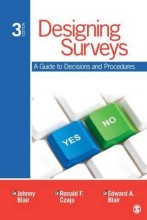Data collection II: Controlling error in data collection
7 important questions on Data collection II: Controlling error in data collection
Why are we concerned about unit response?
What is an equation used to examine how unit nonresponse can potentially affect bias in survey estimates?
1. Unit nonresponse: 1 minus the response rate (cooperating respondends/sample size).
2. Difference between respondents and nonrespondents for the mean value of a particular variable.
1x2
What are four general obligations researchers have to the people who provide data in research studies?
2. Participants should not be deceived.
3. Participation should be willing and informed.
4. Data should be held in confidence.
- Higher grades + faster learning
- Never study anything twice
- 100% sure, 100% understanding
What are factors that can influence the respondent's decision to participate in a survey?
* The survey topic
* The survey sponsor
* A respondents' predisposition to participate in any survey
* The social context in which the survey occurs
Controllable
* The survey administration procedures: advance letter, survey introduction, monetary incentives etc.
* Interview behaviors
Where does the acronym CASIC (computer-assistend survey information collection) refers to?
What are the two major CASIC tools?
What are three sources of problematic interactions between interviewers and respondents?
2. The interviewer
3. The respondent
The question on the page originate from the summary of the following study material:
- A unique study and practice tool
- Never study anything twice again
- Get the grades you hope for
- 100% sure, 100% understanding
































